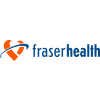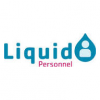Detailed Overview
Within the context of a culturally relevant client and family-centred model, and in accordance with established vision and values of the organization, the Overdose Prevention Services Outreach Worker works collaboratively as a member of the assigned First Nations Overdose Prevention Services team.
Ensures the client’s self-identified goals for safety, recovery and community connection are supported by appropriate services and practices, and are consistent with the values of self-determination / choice, harm reduction, and cultural safety and humility.
Monitors clients by methods such as observing client’s health condition and environment. Arranges, plans, escorts and accompanies as necessary, designated / marginalized individuals on appointments, errands and other activities.
Creates linkages to other community resources and programs. Assists clients in accessing benefits or assistance as appropriate and provides brief planning and coordination on issues related to substance use, opioid agonist therapy, overdose prevention and harm reduction.
Under the direction of the Registered Nurse, administers medication to clients and provides medication reminders. Liaises and works with community resources and healthcare providers.
Provides basic health-promoting information and promotes development of life-skills to clients. Performs a variety of general clerical duties, attends meetings and participates in patient care planning and coordination.
The Outreach Worker provides services primarily at a fixed / mobile site locations within the assigned local First Nation community with outreach conducted as needed and / or as the program requires.
The services provided reach a diverse group of people that use substances, including those who identify as Indigenous, youth, LGBTQ2S and POC.
Responsibilities Monitors clients by methods such as observing client’s health condition and environment including functional ability, living arrangement, and family supports, documenting behavioural, physical and cognitive changes in accordance with standard procedures or specific directions.
Reports significant and unsafe observations to Registered Nurse or delegate. Establishes a culturally respectful, dignifying and purposeful relationship with the client.
Arranges, plans, escorts and accompanies, as necessary, designated / marginalized individuals on medical appointments and errands, while providing emotional, moral support and physical assistance to further the development of self-management skills.
Creates linkages to other community resources and programs. Contacts relevant organizations / businesses / services, and assists clients with processing forms.
Assists clients with access to other resources (food, supplements) and provides advocacy as needed. Assists clients in accessing benefits or assistance, as appropriate.
Provides brief assessment and planning on issues related to substance use, opioid agonist therapy, overdose prevention and harm reduction, and social determinants of health such as income security, housing, social networks, selfefficacy and self-care.
Acts in an advocacy role with government agencies, health care providers and property owners. According to established procedures and under the direction of the Registered Nurse, administers medication to clients and provides medication.
Identifies potential emergencies, and makes appropriate interventions to meet individual needs and situational requirements as necessary such as performing cardiopulmonary resuscitation in the event of cardiac arrest, contacting Mental Health Emergency Services, ambulance, police, and staying with client.
Acts as a liaison between various agencies by acting as an inter-agency link. Updates designated team on services currently available.
Liaises with community agencies to provide information on services. Identifies client's needs for services and makes appropriate referrals, or develops alternate strategies for client support, education and follow-up care.
Provides basic health-promotion information to clients such as crisis counselling / prevention / intervention around issues such as violence, loss / grief, harm reduction.
Promotes development of life-skills in clients by providing them with information / referrals and practical assistance to meet their basic needs.
Encourages client empowerment and capacity to exercise choice and actively participate in decisions affecting their own health and healthcare.
Maintains an awareness of current community resources including culturally appropriate health care services, social, economic, recreational, employment, educational services, resources and agencies.
Utilizes information to assist clients to access services and problem solve with the client as required. Performs a variety of general clerical duties such as responding to calls / inquiries regarding routine program information, maintaining client files, utilizing a variety computer software applications, keyboarding and producing a variety of documents.
Files, photocopies, and faxes as required. Identifies own learning needs / goals. Maintains and regularly updates knowledge in culturally relevant learnings in harm reduction, communicable diseases, mental health and substance use issues.
Reviews information with manager. Engages in a variety of activities to meet these needs / goals and applies these to improve access, integration and coordination.
Attends meetings and participates in patient care planning and co-ordination. Maintains an accurate record of outreach activities and provide regular reports.
Carries out responsibilities in accordance with health and safety requirements. Immediately reports unsafe situations by notifying manager or other appropriate personnel.
Supports clients using substances by providing Overdose Prevention Services and facilitating drug checking. Engages in conversations about overdose risk and substance use safety options and planning, as needed.
Performs other related duties as assigned. Qualifications Education, Training, and Experience : Completion of Substance Use Certificate, plus one year’s recent related experience working with clients with substance use issues, or an equivalent combination of education, training and experience.
Knowledge of Indigenous health approaches, protocol and cultural issues. Valid BC driver’s license and vehicle. Current CPR certificate.
Skills and Abilities Knowledge of First Nations, Inuit, Métis and Indigenous ancestry. Demonstrated ability to work with marginalized and culturally diverse populations, and provide culturally sensitive services.
Knowledge Indigenous culture’s impact on the development of individuals and communities. Knowledge of residential school issues and the effects on First Nations people.
Knowledge of Indigenous cultural practices and beliefs, including traditional healing practices such as drumming, singing, and smudge ceremonies.
Knowledge of community resources specific to Indigenous populations. Ability to develop consultative relationships with health professional, counsellors, traditional healers and Elders.
Demonstrated listening and information seeking skills that promotes communication and leads to a cooperative approach to problem solving within a multidisciplinary setting.
Demonstrated ability to establish rapport with clients and families in order to explore issues that are beyond the initial presented concerns.
Working knowledge of harm reduction principles and practices, Indigenous health care perspectives, and trauma and resiliency informed approaches.
Crisis prevention / intervention and conflict resolution / de-escalation skills. Ability to work independently and collaboratively in a team environment as well as capacity to work in partnership with other community agencies.
Ability to communicate effectively both verbally and in writing. Physical ability to carry out the duties of the position.








